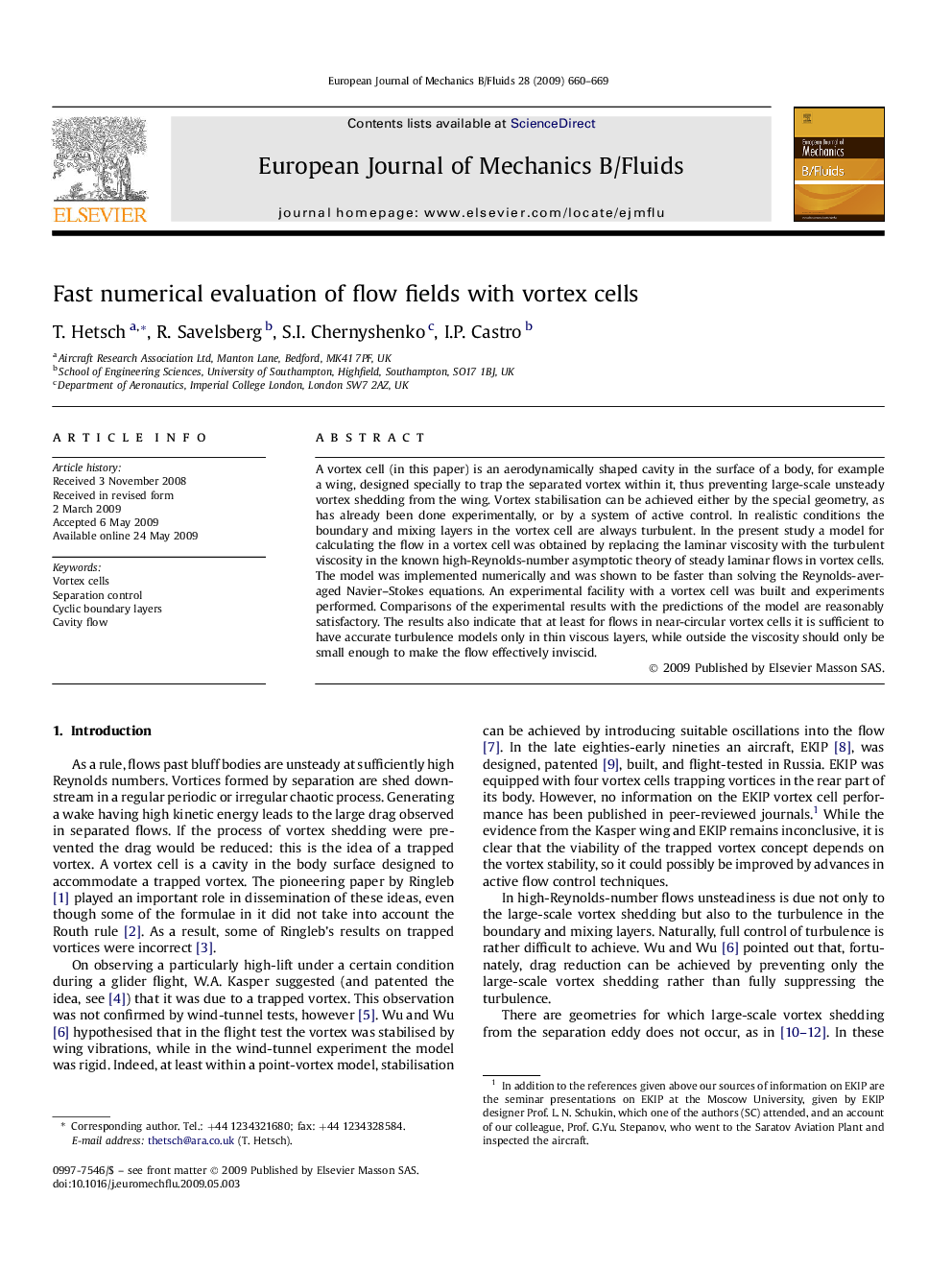| کد مقاله | کد نشریه | سال انتشار | مقاله انگلیسی | نسخه تمام متن |
|---|---|---|---|---|
| 650692 | 1457309 | 2009 | 10 صفحه PDF | دانلود رایگان |

A vortex cell (in this paper) is an aerodynamically shaped cavity in the surface of a body, for example a wing, designed specially to trap the separated vortex within it, thus preventing large-scale unsteady vortex shedding from the wing. Vortex stabilisation can be achieved either by the special geometry, as has already been done experimentally, or by a system of active control. In realistic conditions the boundary and mixing layers in the vortex cell are always turbulent. In the present study a model for calculating the flow in a vortex cell was obtained by replacing the laminar viscosity with the turbulent viscosity in the known high-Reynolds-number asymptotic theory of steady laminar flows in vortex cells. The model was implemented numerically and was shown to be faster than solving the Reynolds-averaged Navier–Stokes equations. An experimental facility with a vortex cell was built and experiments performed. Comparisons of the experimental results with the predictions of the model are reasonably satisfactory. The results also indicate that at least for flows in near-circular vortex cells it is sufficient to have accurate turbulence models only in thin viscous layers, while outside the viscosity should only be small enough to make the flow effectively inviscid.
Journal: European Journal of Mechanics - B/Fluids - Volume 28, Issue 5, September–October 2009, Pages 660–669